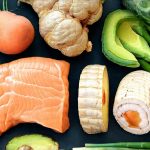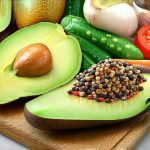Digestion is often an overlooked aspect of nutrition, yet it fundamentally impacts how well our bodies utilize the nutrients from food. Many individuals experience digestive discomfort – bloating, gas, constipation, diarrhea – that can significantly affect their quality of life. Often, these issues aren’t about what we eat overall but rather how easily our bodies process what we consume. Protein, essential for countless bodily functions, is a common culprit in digestive distress, not necessarily because it’s inherently difficult to digest, but due to its complex structure and the varying ways different protein sources are processed by the body. Understanding this nuance allows us to make informed choices about protein intake that support both nutritional needs and comfortable digestion.
The challenge lies in the fact that protein is a relatively large molecule requiring breakdown into smaller amino acids for absorption. The efficiency of this process varies based on the type of protein, how it’s prepared, and individual digestive capabilities. For those following plant-based diets, or even omnivorous ones seeking to optimize digestion, mindful protein selection becomes crucial. This isn’t about eliminating any food groups but rather focusing on choices that minimize digestive strain while maximizing nutrient absorption. It’s also important to remember that digestive health is highly individualized; what works for one person may not work for another, and experimentation with different protein sources is often necessary. You can learn more about optimizing your diet with plant-based proteins.
Protein Sources and Digestibility: A Comparative Look
The digestibility of a protein source isn’t simply about its origin (plant vs. animal). It’s influenced by factors like fiber content, fat content, inherent enzyme inhibitors, and the amino acid profile itself. Animal proteins are generally considered highly digestible – around 90-99% – because they closely resemble human tissues and require less breakdown. However, this doesn’t automatically make them easier for everyone to digest; high fat content in some animal sources can slow digestion and cause discomfort. Plant-based protein sources often have lower digestibility scores (ranging from 60-90%) due to the presence of anti-nutrients, such as phytates and tannins, which can interfere with enzyme activity. However, proper preparation methods – soaking, sprouting, fermenting – can significantly reduce these anti-nutrient levels, improving digestibility.
The specific plant protein source also plays a significant role. For instance, soy protein isolate is often highly digestible due to processing that removes many of the potential digestive roadblocks. Legumes, while nutritious, are notorious for causing gas and bloating in some individuals due to their high FODMAP (Fermentable Oligosaccharides, Disaccharides, Monosaccharides and Polyols) content and complex carbohydrates. Similarly, whole grains contain phytates which can hinder mineral absorption and cause digestive issues if not properly prepared. The key isn’t necessarily avoiding these foods entirely but understanding how to mitigate their potential downsides through preparation techniques and mindful consumption. Are plant-based diets a good option for sensitive guts?
Ultimately, a diverse protein intake – incorporating both plant and animal sources (if you’re an omnivore) – is often the most beneficial approach for optimal digestion. This allows your gut microbiome to thrive on varied substrates and reduces reliance on any single protein source that might cause issues. Prioritizing minimally processed options, regardless of origin, will also generally lead to better digestibility.
Optimizing Plant-Based Protein Digestion
Plant-based proteins offer a wealth of nutritional benefits but require a bit more consideration for optimal digestion. The strategies below focus on reducing anti-nutrient content and improving overall breakdown:
- Soaking: Legumes (beans, lentils) should be soaked overnight before cooking to reduce phytates and FODMAPs. Discard the soaking water and rinse thoroughly.
- Sprouting: Similar to soaking, sprouting activates enzymes that break down phytic acid and makes nutrients more bioavailable. This works well for grains and legumes.
- Fermenting: Fermented soy products like tempeh and natto are significantly easier to digest than unfermented tofu due to the breakdown of anti-nutrients during fermentation. Sauerkraut, kimchi, and other fermented foods also support gut health which aids protein digestion.
- Combining with Digestive Aids: Pairing plant proteins with spices like ginger or turmeric can aid digestion. Ginger stimulates digestive enzymes, while turmeric has anti-inflammatory properties that soothe the gut. Herbal treatments like ginger can be particularly helpful.
These preparation methods aren’t just about improving digestibility; they also enhance the nutritional value of plant-based proteins by unlocking essential minerals and vitamins. It’s important to remember that individual tolerance varies, so experimenting with different methods and observing your body’s response is crucial.
The Role of Cooking Methods
How you cook protein significantly impacts its digestibility. Overcooking can denature proteins excessively, making them harder for enzymes to break down. Conversely, undercooked protein may be difficult to digest and pose safety risks. Gentle cooking methods are generally preferred:
- Steaming: Preserves nutrients and minimizes denaturation compared to high-heat methods.
- Poaching: Similar to steaming, poaching is a gentle method that keeps proteins tender and digestible.
- Slow Cooking: Allows for prolonged, low-temperature breakdown of proteins, making them easier to digest. This is especially helpful for tougher cuts of meat or legumes.
- Marinating: Marinating protein in acidic substances (lemon juice, vinegar) helps break down muscle fibers, improving digestibility and tenderness.
Avoid excessive frying or grilling at very high temperatures, as these methods can create harmful compounds and make proteins more difficult to digest. Paying attention to cooking times and techniques ensures that you’re maximizing both nutrient absorption and digestive comfort. For a soothing meal, consider soups and broths.
Gut Health & Protein Tolerance
A healthy gut microbiome is paramount for efficient protein digestion. The trillions of bacteria in your gut play a vital role in breaking down food, absorbing nutrients, and regulating inflammation. A compromised gut microbiome can lead to increased sensitivity to proteins, resulting in bloating, gas, or other digestive issues. Here are steps you can take to support gut health:
- Probiotic Foods: Incorporate probiotic-rich foods like yogurt (if dairy is tolerated), kefir, sauerkraut, kimchi, and kombucha into your diet.
- Prebiotic Foods: Feed the beneficial bacteria in your gut with prebiotic fibers found in onions, garlic, leeks, asparagus, bananas, and oats.
- Fiber Intake: Adequate fiber intake promotes a healthy microbiome and regular bowel movements. Aim for at least 25-30 grams of fiber per day from diverse sources.
- Stress Management: Chronic stress can negatively impact gut health. Practice stress-reducing techniques like meditation, yoga, or deep breathing exercises. Step-by-step strategies can help manage stress and improve gut function.
- Hydration: Drinking enough water is essential for optimal digestion and a healthy microbiome.
Ultimately, choosing digestive-friendly proteins isn’t about adhering to rigid rules but rather about understanding your body’s unique needs and making informed choices that support both nutrition and comfort. It’s a journey of experimentation, mindful consumption, and prioritizing gut health as the foundation for overall well-being. Fluid balance is also key to digestive wellbeing.


















